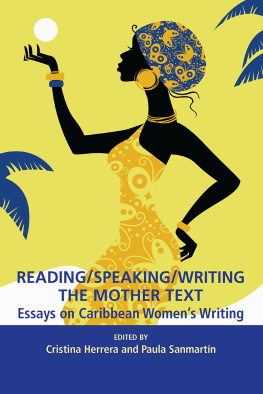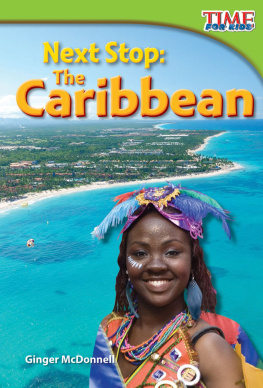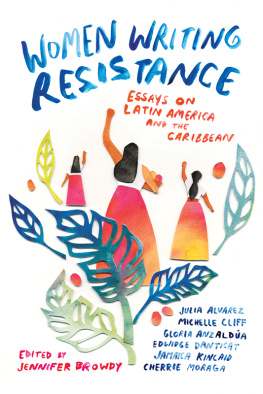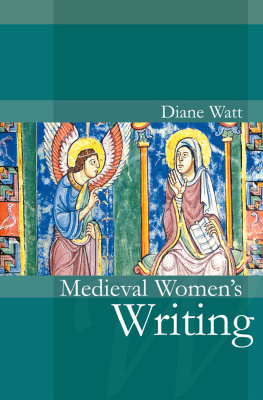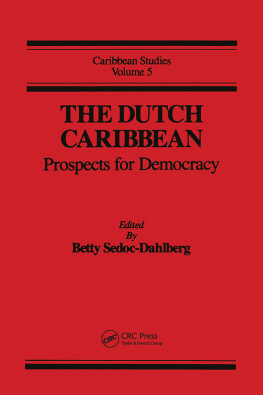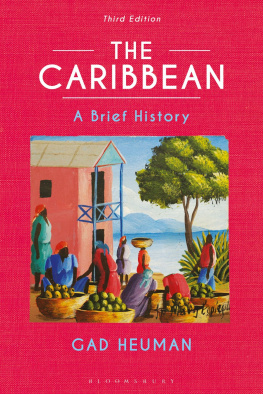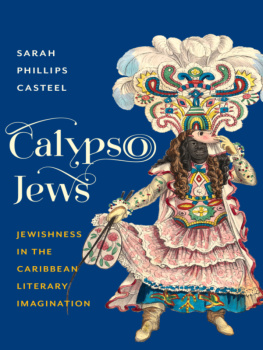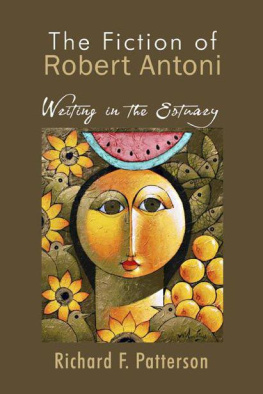READING/SPEAKING/WRITING
THE MOTHER TEXT
Essays on Caribbean Womens Writing
READING/SPEAKING/WRITING
THE MOTHER TEXT
Essays on Caribbean Womens Writing
EDITED BY
CRISTINA HERRERA AND PAULA SANMARTN
DEMETER PRESS
Copyright 2015 Demeter Press
Individual copyright to their work is retained by the authors. All rights reserved. No part of this book may be reproduced or transmitted in any form by any means without permission in writing from the publisher.
Funded by the Government of Canada
Financ par la gouvernement du Canada
Demeter Press
140 Holland Street West
P. O. Box 13022
Bradford, ON L3Z 2Y5
Tel: (905) 775-9089
Email: info@demeterpress.org
Website: www.demeterpress.org
Demeter Press logo based on the sculpture Demeter by Maria-Luise Bodirsky
Printed and Bound in Canada
Library and Archives Canada Cataloguing in Publication
Reading/speaking/writing the mother text : essays on Caribbean womens writing / editors, Cristina Herrera and Paula Sanmartn.
Includes bibliographical references.
ISBN 978-1-926452-70-8 (paperback)
1. Caribbean literature -- Women authors -- History and criticism. 2. Caribbean literature -- History and criticism. 3. Motherhood in
literature. 4. Mothers in literature. I. Herrera, Cristina (Chicano
studies professor), author, editor II. Sanmartn, Paula, author, editor
PN849.C3R42 2015 809.8928709729 C2015-905625-X
To all Caribbean women
Table of Contents
Acknowledgements
Introduction:
The Poetics of Motherhood and Maternity
in Caribbean Womens Writing
Paula Sanmartn and Cristina Herrera
I.
ON BEING A MOTHER:
CHALLENGING MOTHERHOOD AND THE MOTHER
AS OTHER
Accepting a Daughter:
Gisle Pineaus Lesprance-macadam ,
Abigail L. Palko
Or Not to Mother?
Astrid Roemers Lijken op liefde (Looks Like Love)
Doris Hambuch
My Destiny Was to Come to this Island:
Maternal Rejection and Colonization in
Esmeralda Santiagos Conquistadora
Cristina Herrera
II
MATRILINEALISM AND MATERNAL LEGACIES
Memory, Myth and History in Shara McCallums
Mother/Daughter Poems
Adrienne McCormick
From Australian Whiteness to Caribbean Self:
Maryse Conds Matrilineal Family Narrative of Identity Detection
Amy Lee
III
MOTHERLY, DAUGHTERLY VOICES AND HERSTORIES
My Mama Had a Story:
Mothers and Intergenerational Relations in Andrea Levys Fiction Charlotte Beyer
Pal Andaki :
Genre, History and Mother-Daughter Doublespeak
in Edwidge Danticat s Fiction
Angeletta KM Gourdine
Sharing the (M)Others Text:
Mother-Daughter Relationships in
Black Cuban Womens Talking Texts
Paula Sanmartn
IV
TROUBLING MOTHERHOOD:
MATERNAL ABSENCE, REJECTION, AND VIOLENCE
She Had Put the Servant in Her Place:
Sexual Violence and Generational Social Policing between
Women in Marie-Elena Johns Unburnable
Amy K. King
Loss of Mother, Loss of Self:
Orphanhood in Jamaica Kincaids
The Autobiography of My Mother
Daniel Arbino
Motherhood by Default:
Rethinking the Patriarchal Family in Gisle Pineaus Novels
Florence Ramond Jurney
About the Contributors
Acknowledgements
Our collection has been the result of a long, arduous process, which included several calls for papers, as the project changed form due to the vast differences in the number of contributions we received addressing the different areas of the Caribbean. As we navigated the difficulties of trying to adapt to the limitations we faced, while remaining ambitious in our scope, we wish to thank our contributors for their work and patience with us throughout the editorial process.
The support we received from Demeter Press and her editor in chief, Dr. Andrea OReilly, was also crucial for the successful completion of this project: from the moment she believed in our book proposal, Andrea was a constant source of encouragement throughout the challenges we encountered. The editorial team at Demeter Press needs also to be acknowledged and praised for their expertise and professionalism, with a particular mention to Katherine Barretts copyediting skills.
As we have completed this collection while being faculty members at California State University, Fresno, we need to recognize the universitys support through the Provost Research/Creative Awards, which we both received in several continuous semesters in order to dedicate time to work on this project. In this sense, the two different Departments we belong to, Modern and Classical Languages and Literatures and Chicano and Latin American Studies, also helped us to be able to do research for the collection as we were awarded course releases.
And finally, we need to thank our source of inspiration, those Caribbean women the writers we study write about. We hope to have shown how motherhood constitutes a fundamental theme in the work of Caribbean women authors, a theme that needs to be a further source of study connecting different areas of scholarship.
A differentbut not least importantsource of inspiration has come from our family members and loved ones, who also need to be thanked and acknowledged, as their support and trust in our abilities has been essential in leading this project to good completion.
Introduction
The Poetics of Motherhood and Maternity
in Caribbean Womens Writing
PAULA SANMARTN AND CRISTINA HERRERA
The concept of voicelessness necessarily informs any discussion of Caribbean women and literature. It is a crucial consideration because it is out of this voicelessness and consequent absence that an understanding of our creativity in written expression emerges. By voicelessness, we mean the historical absence of a specifically female position on major issues such as slavery, colonialism, decolonization, womens rights and more direct social and cultural issues.
Carole Boyce Davies and Elaine Savory Fido,
Out of the Kumbla (1)
I N THEIR 1990 SCHOLARLY COLLECTION entitled Out of the Kumbla: Caribbean Women and Literature , editors Carole Boyce Davies and Elaine Savory Fido documented the need to unearth Caribbean womens voices within the racialized and gendered discourses of power that have silenced this group. More than twenty years later, this studys goal resonates highly with our own collections aim, namely to expose the myriad ways in which Caribbean women authors shape and construct their texts to theorize motherhood, mothering, maternity, and mother-daughter relationships. Even as we are indebted to such an important collection, a telling aspect of Caribbean womens lives, the role of motherhood, is mostly missing in Davis and Fidos collection, with only one chapter dedicated to this theme. It would seem apt that in a project dedicated to undoing historical, social, and literary silences of Caribbean women, the voices and experiences of mothers would factor within such a scope, given that for most (if not all) women living in this region and in the diaspora, some relationship to maternity, be it as a mother, daughter, or surrogate mother, is an important element of their daily, lived experiences. It is this still enduring theoretical absence that our collection seeks to address.
Academic emphasis on postcolonial and diaspora writers, (black) womens writing, and Caribbean literature came to fruition in the 1970s and 1980s. In the decades since the appearance of Davis and Fidos work, Caribbean womens literature flourished into an established discipline, with the publication of several studies, such as Joan Anim-Addos Framing the Word: Gender and Genre in Caribbean Womens Writing (1996); Catherine Daviess A Place in the Sun? Women Writers in Twentieth-Century Cuba (1997); Janice Lee Liddell and Yakini Belinda Kemps Arms Akimbo: Africana Women in Contemporary Literature (1999); Claudette Williams Charcoal and Cinnamon: The Politics of Color in Spanish Caribbean Literature (2000); Emilia Ippolitos Caribbean Women Writers: Identity and Gender (2000); Carine M. Mardorossians Reclaiming Difference: Caribbean Women Rewrite Postcolonialism (2005). Yet, while a search reveals well over four hundred titles related in some way to the study of Caribbean womens texts, only a handful is explicitly connected to the maternal subject matter, and among them only a few book-length studies have focalized motherhood and maternity in writings by Caribbean women. Among the latter, we can highlight Susheila Nastas Motherlands: Black Womens Writing from Africa, the Caribbean, and South Asia (1991); Simone Alexanders Mother Imagery in the Novels of Afro-Caribbean Women (2001); Caroline Rodys The Daughters Return: African-American and Caribbean Womens Fictions of History (2001); Verena Theile and Marie Drews collection, Reclaiming Home, Remembering Motherhood, Rewriting History: African American and Afro-Caribbean Womens Literature in the Twentieth Century (2009), and Paula Sanmartns Black Women as Custodians of History: Unsung Rebel (M)Others in African American and Afro-Cuban Womens Writing (2014). As the titles showcase, these are mostly comparative studies with an emphasis on Afro-descendant women authors. In addition, the majority of the writers studied belong to Anglophone and to a lesser degree Francophone Caribbean literature, leaving the Dutch and Spanish Caribbean as underexplored fields of study.

